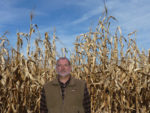Advertise Follow Us
Items Tagged with 'Maryland'
ARTICLES
Making ‘Never-Till’ Corn Yields That Are Fit For A King
Cover crops, split nitrogen, fungicide applications and higher organic matter are helping Rigdon Farms make a hard run at 300-bushel corn.
Read More
What I've Learned from No-Tilling
Efficient Fertility, Cover Crops Set The Table For A Life Of No-Till
Cover crops, specialty products and strategic fertilizer placement provide a yield boost for veteran Pennsylvania no-tiller H. Grant Troop.
Read More

.png?height=125&t=1731942302&width=150)






